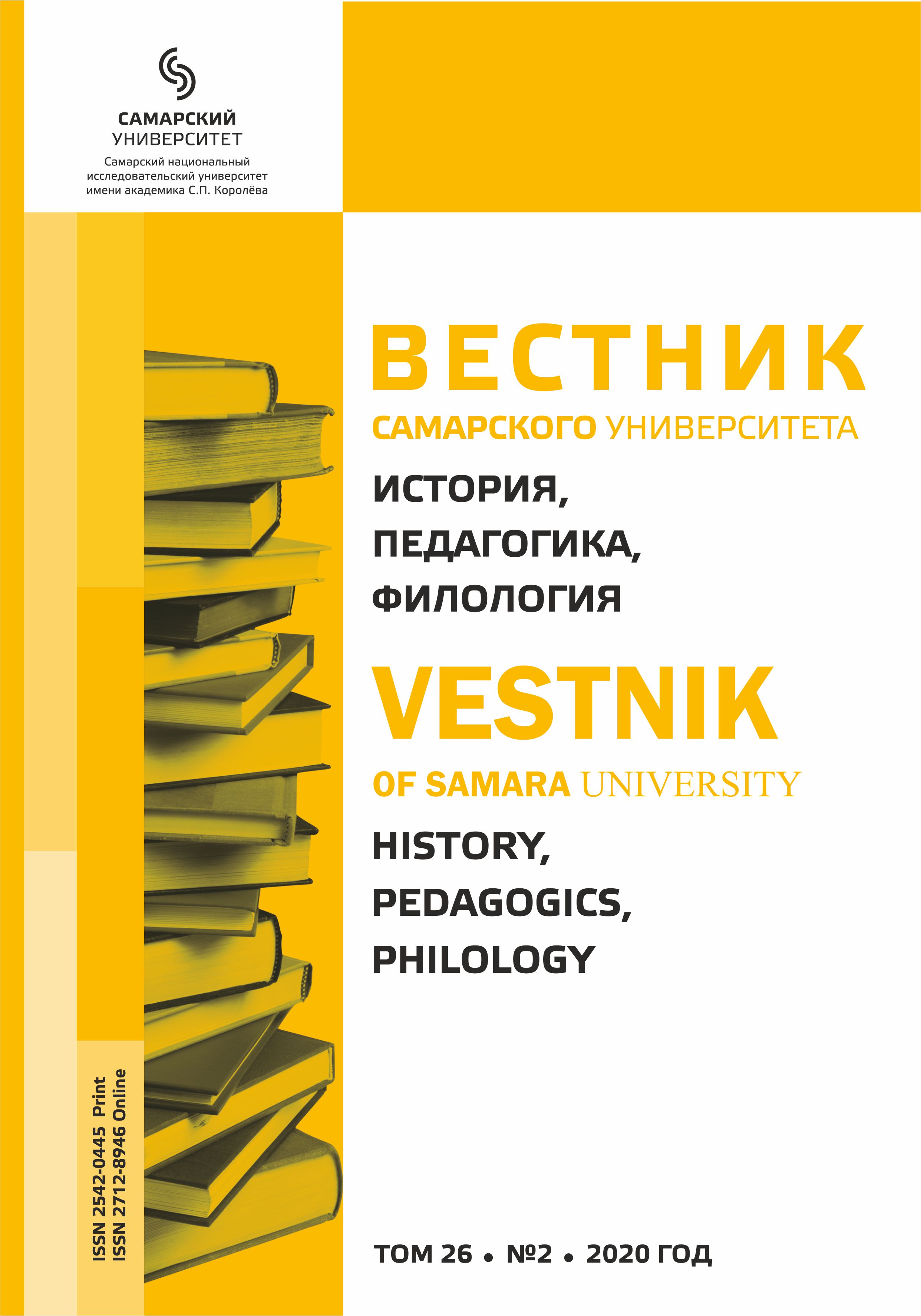Сталинградская битва в дневниковых записях младшего лейтенанта Рудницкого
- Авторы: Романова Г.А.1, Романов Н.Н.2
-
Учреждения:
- Самарский национальный исследовательский университет имени академика С.П. Королева
- филиал Военного учебно-научного центра Военно-воздушных сил Военно-воздушная академия имени профессора Н.Е. Жуковского и Ю.А. Гагарина
- Выпуск: Том 26, № 2 (2020)
- Страницы: 55-61
- Раздел: Статьи
- URL: https://journals.ssau.ru/hpp/article/view/7865
- DOI: https://doi.org/10.18287/2542-0445-2020-26-2-55-61
- ID: 7865
Цитировать
Полный текст
Аннотация
Авторы статьи исследуют события Сталинградской битвы через призму дневниковых записей младшего лейтенанта З.С. Рудницкого. Авторы поставили перед собой ряд задач для раскрытия темы: показать роль ПВО и ее вклад в победу под Сталинградом; оценить уровень материально-технического снабжения Красной армии, оценить значение фронтовых дневников как исторического источника. Актуальность данной темы объясняется необходимостью понимания процессов, в результате которых родилась величайшая военная победа Второй мировой войны, а также возросшим интересом к дневникам как историческому источнику, который исследователи относят к так называемой «мягкой» коммуникативной памяти. Новизна исследования заключается во введении в научный оборот ранее неизвестного источника – фронтового дневника З.С. Рудницкого, который он вел на протяжении всего Сталинградского сражения. Ценность представленного источника состоит в отображении непосредственного восприятия войны глазами молодого девятнадцатилетнего лейтенанта. Работа с материалами дневниковых записей позволила углубить представления о снабжении и вооружении защитников Сталинграда, их моральном состоянии, бытовых проблемах. Исследование выполнено в рамках проблемного поля memory studies с использованием ретроспективного, сравнительно-исторического, междисциплинарного методов.
На основе анализа фронтовых будней младшего лейтенанта Рудницкого, который в составе 303 артиллерийско-зенитного полка воевал на Сталинградском фронте, сделан вывод, что ежедневный воинский подвиг артиллеристов-зенитчиков позволил перекрыть небо над городом для немецкой авиации, особенно в период контрнаступления. Ценность этого подвига становится еще более очевидной на фоне крайне тяжелого состояния и нехватки техники, оборудования, бытовых неудобств. Сделан вывод о необходимости введения в научный оборот дневников, существенно расширяющих круг исторических источников.
Об авторах
Г. А. Романова
Самарский национальный исследовательский университет имени академика С.П. Королева
Автор, ответственный за переписку.
Email: morenov@ssau.ru
ORCID iD: 0000-0001-9616-1041
кандидат исторических наук, доцент
Н. Н. Романов
филиал Военного учебно-научного центра Военно-воздушных сил Военно-воздушная академия имени профессора Н.Е. Жуковского и Ю.А. Гагарина
Email: morenov@ssau.ru
ORCID iD: 0000-0003-4539-9310
кандидат исторических наук, доцент
Список литературы
- Ассман 2004 – Ассман Я. Культурная память: Письмо, память о прошлом и политическая идентичность в высоких культурах древности / пер. с нем. Москва, 2004. URL: https://bookree.org/reader?file=716805.
- Вести дневники... 2013 – «Вести дневники на войне категорически запретить». Интервью Жукова Ю.Н. // Труд. 2013. 8 сент. URL: https://www.trud.ru/article/08-05-2013/1293303_vesti_dnevniki_na_vojne_kategoricheski_zapretit.html.
- Герои терпения… 2010 – Герои терпения. Великая Отечественная война в источниках личного происхождения: сб. документов / ред.-сост. И.Г. Тажидинова. Краснодар, 2010.
- Документальные свидетельства... 2010 – Документальные видетельства Великой войны (к 65-летию Победы в Великой Отечественной войне 1941-1945 гг. / ред.-сост. В.И. Иванов. Краснодар, 2010.
- Леонтьева 2015 – Леонтьева О.Б. Мемориальный поворот в современной исторической науке // Диалог со временем. 2015. Т. 50. С. 59–96. URL: https://roii.ru/publications/dialogue/article/50_3/leontieva_o.b./memorial-turn-in-the-contemporary-russian-historical-studies.
- Лотман 1992 – Лотман Ю.М. Избранные статьи. Т. 1. Таллинн, 1992. С. 200–202. URL: http://yanko.lib.ru/books/cultur/lotman-selection.htm.
- Память о войне… 2005 –
- Память о войне 60 лет спустя: Россия, Германия, Европа. Москва: Новое Литературное Обозрение, 2005. URL: https://urokiistorii.ru/article/789.
- Репина 2003 – Репина Л.П. Культурная память и проблемы историописания (историографические заметки). Препринт WP6/2003/07. Москва: ГУ ВШЭ, 2003. 44 C. URL: https://www.hse.ru/data/2010/05/05/1216435442/WP6_2003_07.pdf.
- Сохрани мои письма... 2007, 2010 – Сохрани мои письма…: сб. писем и дневников евреев периода Великой Отечественной войны / сост. И.А. Альтман, Л.А. Терушкин, Н, Бродская. Вып. 1. 2007; Вып. 2. 2010. 328 c. URL: http://sgma.alpha-design.ru/MMORPH/N-55-html/shevelev/arch/Sohrani_moi_2010.pdf.
- Тажидинова 2012 – Тажидинова И.Г. Дневники участников Великой Отечественной войны: потенциал источника» // Культурная жизнь Юга России. 2012. № 2 (45). С. 39–43. URL: https://cyberleninka.ru/article/n/dnevniki-uchastnikov-velikoy-otechestvennoy-voyny-potentsial-istochnika.
- Хальбвакс 2007 – Хальбвакс M. Социальные рамки памяти / пер. с фр. и вступ. статья С.Н. Зенкина. Москва: Новое издательство, 2007. URL: https://www.academia.edu/29735881.
- Эткинд 2004 – Эткинд А. Столетняя революция: юбилей начала и начало конца // Отечественные записки. №5. URL: http://www.strana-oz.ru/2004/5/stoletnyaya-revolyuciya-yubiley-nachala-i-nachalo-konca.
Дополнительные файлы













